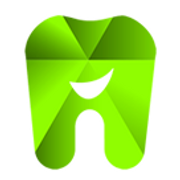
When you’re pregnant, staying healthy is critical to keeping your developing baby in the best shape. But while your mind may be focused on what’s happening in your belly, you should also stay on top of your dental health. During pregnancy, the body goes through many unique changes that can increase the risk of certain oral health issues—including cavities and periodontal disease. Fortunately, by following these do’s and don’ts, expectant mothers can protect their smile and their baby with confidence.
Do:
Keep up with routine cleanings.
Between birthing classes and obstetrician appointments, getting to your dentist can feel like a chore. However, you need to continue your routine dental exam and cleaning schedule. During these visits, your dentist will remove plaque that causes cavities and periodontal disease, as well as address problems that may interfere with your pregnancy.
Tell your dentist.
 When you do visit your dentist, make sure to tell your provider that you’re pregnant. When patients are with child, dentists will adjust care to ensure that both the mother and baby are kept safe. For example, some may avoid dental X-rays to minimize exposure to unnecessary radiation. Providers may also recommend using a local anesthetic for a safer, yet effective alternative to general anesthesia.
When you do visit your dentist, make sure to tell your provider that you’re pregnant. When patients are with child, dentists will adjust care to ensure that both the mother and baby are kept safe. For example, some may avoid dental X-rays to minimize exposure to unnecessary radiation. Providers may also recommend using a local anesthetic for a safer, yet effective alternative to general anesthesia.
Reschedule unnecessary dental work.
If you have a dental health emergency, your dentist should address it right away to avoid health complications that could endanger your pregnancy. However, elective procedures that aren’t necessary should be postponed until after the baby is born, as certain procedures could place stress on your immune system.
Don’t:
Brush immediately after morning sickness.
As the American Dental Association explains, vomiting can expose your mouth to stomach acids that are harmful to teeth. However, brushing immediately after morning sickness can further stimulate the acidic action. To clean your mouth, rinse with a teaspoon of baking soda mixed in water instead. After 30 minutes, you can brush your teeth as normal.
Forget to floss.
Due to hormonal changes in the body, pregnant women face a higher risk of periodontal disease than other adults, says the American Pregnancy Association. In addition to brushing twice a day and visiting a dentist for cleanings, flossing at least once a day is one of the best ways to prevent infection of the gum tissue.
Ignore tooth pain.
While you may grow used to physical discomfort during your pregnancy, toothaches aren’t a normal part of the process. If you have any unusual tooth pain or sensitivity, seek immediate care from a dentist—the symptoms may be due to cavities or infections that could put your pregnancy at risk.
If you’re an expectant mother in Cold Spring, KY, Rachel E. Gold, DMD – Total Health Dentistry will help keep your mouth healthy. Embracing a holistic approach to dentistry, Dr. Gold knows how to help pregnant women defend against periodontal disease, infections, and other common concerns. To learn more about her comprehensive services, visit the practice online. For appointments, call a friendly staff member at (859) 441-1230.
About the Business
Have a question? Ask the experts!
Send your question

